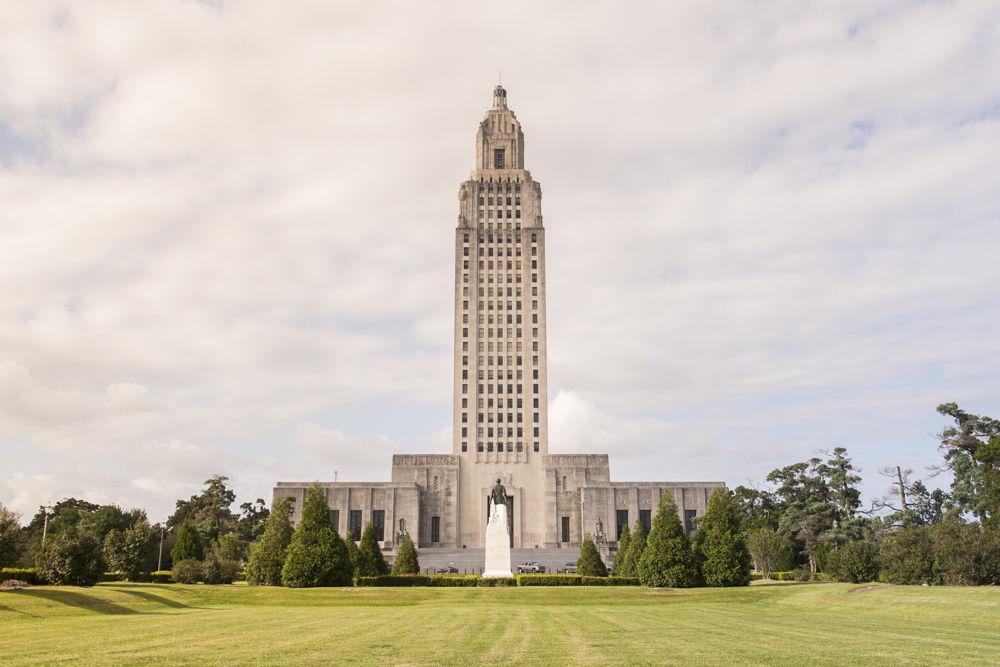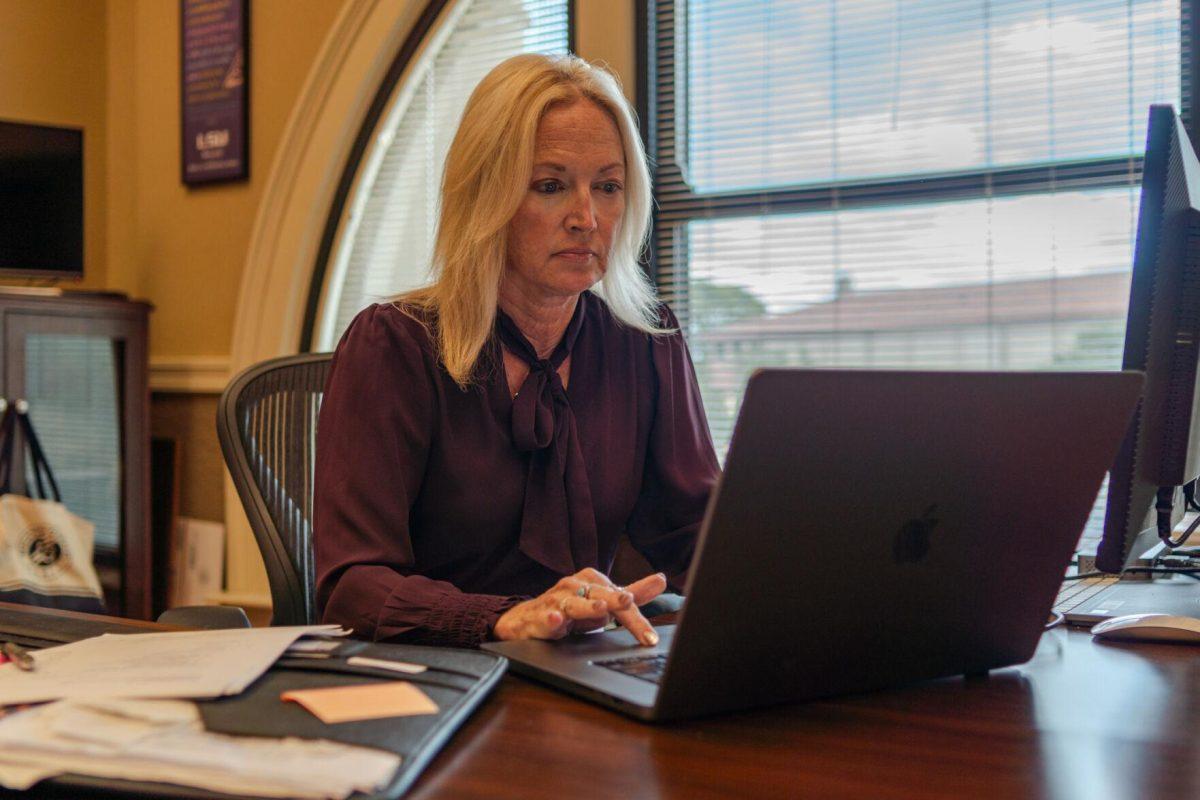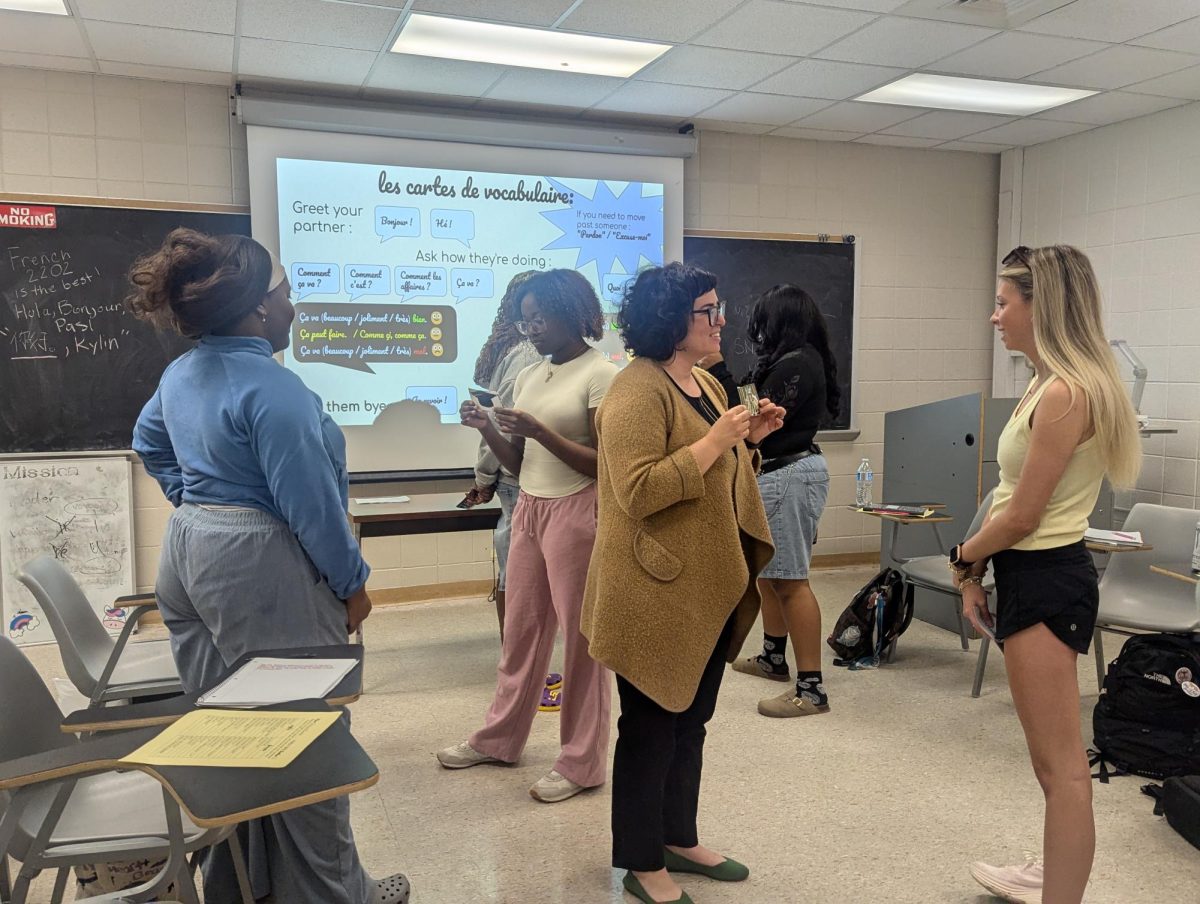The 2018 Louisiana Survey was released in six parts, the final report was delivered April 16 and showed that Louisianans trust local media outlets, but still see bias in the media.
“The results of the survey show that Louisianans value local news outlets and trust those outlets to keep them informed about what is happening around our state and nation, but many respondents also want to see more balanced reporting,” said Michael Henderson, director of the Public Policy Research Lab, who conducted the survey.
About three quarters of Louisiana residents said they feel local media outlets keep them well informed; however, 60 percent said they still feel local outlets show a bias.
The Manship School of Mass Communication’s Public Policy Research Lab conducts the Louisiana Survey annually, and it includes six parts that cover a range of topics about public opinion of the state, Henderson said. Some of the topics vary each year depending on prevailing social issues, but some are repeated to gauge change over time.
“The Louisiana Survey provides a pulse on how Louisiana’s citizens feel about where we are as a state and where they’d like to see the state go — something that can help to inform Louisiana’s leaders as they make important decisions about our future,” said Manship Dean Jerry Ceppos in a press release.
The first part of the survey was released March 15. Survey results show 79 percent of respondents think “both Republicans and Democrats will bicker and oppose each other even if it keeps them from solving the state’s problems.”
Also, 73 percent of respondents said the state is more politically divided now than in the past, and 70 percent believe most elected officials in Louisiana don’t care what people like themselves think, according to the survey. Fifty percent say they think the state is moving in the wrong direction, which is a 10 percent increase from last year’s survey.
“What we see this year with the survey is that people overall feel more negatively about the state of Louisiana and are frustrated with the lack of compromise and problem-solving in the Capitol,” Henderson said.
In an interview, Henderson said he was “alarmed” that nearly 50 percent of people don’t believe active engagement can influence government and policy. He said he was also surprised by the lack of confidence Louisiana residents had in their peers’ and neighbors’ ability to make decisions.
“From a normative perspective, I would think that’s not really where you would want to be in a representative democracy,” Henderson said. “That doesn’t seem like a healthy place to be.”
The second part of the survey, released March 16, addressed public opinion about Louisiana’s fiscal cliff. The survey reveals Louisianans favor the income tax proposal more than the proposal to reduce the state’s sales tax.
Fifty-six percent of respondents said they want to lower personal income tax breaks and limit deductions, according to the survey report. Sixty-three percent oppose spending cuts and support raising taxes to fund elementary and secondary education. A little more than half of the people surveyed said they oppose spending cuts and support raising taxes to fund higher education.
“The results from this report indicate that Louisianans recognize the seriousness of the state’s budget challenges and are willing to consider an array of policy options to deal with it,” Henderson said in a press release.
Henderson said in an interview he was not only surprised at the significant increase in people thinking the income tax is too high, but also the high percentage of people who are willing to pay high income taxes to fund education, healthcare and infrastructure.
“It could mean this is a response to not so much changes in the income tax then it is to what they believe to be true about the income tax and possibly the political rhetoric and the debates that are emerging right now around the fiscal cliff,” Henderson said.
Henderson said he’s interested to see if these attitudes about income tax will prevail in next year’s survey.
“My best guess is that this is just a function of the political discourse, which means you have to wonder what this might look like a year from now,” Henderson said.
The fourth report from the survey focused on gender discrimination in Louisiana. Henderson said the results of the survey showed “gender discrimination as a very real issue in our state.” Overall, 70 percent of Louisianans said they thought women faced “some” or “a lot” of discrimination and 61 percent of residents say women face significant obstacles that make it harder for them to get ahead
The Public Policy Research Lab conducted the survey from Jan. 26 to March 3, polling 852 Louisianans, according to the press release. The survey was conducted by live interviewers using dual frame sampling in which the random sample of telephone numbers included both landlines and cell phone, according to Henderson. The survey had an 11 percent response rate.
“That doesn’t sound great, but it’s pretty in line with the rest of reputable live interviewer telephone polling that’s done out there,” Henderson said. “We’re sort of hitting par for where we are in 2018.”
The fifth report of the survey revealed Louisianans remain supportive of criminal justice reforms and medicaid expansion. Around 54 percent of people said they do not believe the current criminal justice system is fair. However, the majority of Louisiana residents said they are in favor of the death penalty.
In 2018, only 64 percent say they supported judicial discretion in sentencing over mandatory minimum sentences which survey conductors said was a sharp drop from only one year ago when 72 percent said preferred judicial discretion.
“The results of the survey suggest that Louisiana is making progress on these issues in the eyes of its residents, but still has work to do to satisfy many Louisianans,” Henderson said.
Henderson said the lab uses live interviewers instead of an internet survey to eliminate coverage error. Coverage error occurs when certain population segments are automatically excluded from a sample. There’s still 1 to 2 percent of people in Louisiana without any telephones, but the coverage error is much less significant with telephones than internet.
In Louisiana especially, lack of internet access affects certain segments of the population over others, which Henderson called the digital divide. He added that the divide is correlated with race.
“We have a much larger than average digital divide between blacks or African-Americans and whites in terms of access to internet,” Henderson said.
Henderson said the lab starts the survey process in the fall with the director of the Reilly Center organizing meetings with government officials, interest groups and other organizations that follow Louisiana government.
“It meets a variety of people from across the range of policy interests and ideological spectrum to gather input about what’s of interest from their perspective,” Henderson said.
After the brainstorming stage, survey creators highlight the issues they want to cover, and from there, Henderson writes the questionnaire, he said. He then sends out the questionnaire to other faculty to proofread it for methodological purposes.
“As often as possible we try to model questions directly off of questions that have been used by reputable national pollsters because we know they’re more valid, they’ve been used in the past,” Henderson said.
While most surveys in the public sphere are only about 10 to 12 questions long and take about five minutes to complete, the Louisiana Survey is around 80 to 90 questions and takes about 25 minutes to complete, Henderson said.
Annual Louisiana Survey shows resident’s disappointment with state government, trust in local media
April 19, 2018
The Louisiana state capitol stands tall on Oct. 2, 2017, in downtown Baton Rouge.
More to Discover









